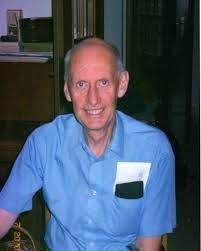 The Department of Physics is sorry to announce the death of Professor David Brink FRS on 8 March 2021.
The Department of Physics is sorry to announce the death of Professor David Brink FRS on 8 March 2021.
David Maurice Brink was born on 20 July 1930 in Hobart, Tasmania. He obtained a BSc from the University of Tasmania in 1951, and then moved to Magdalen College, Oxford as a Rhodes Scholar. His DPhil, 'Some aspects of the interactions of fields with matter', supervised by Maurice Pryce, was awarded in 1955. David was a Royal Society Rutherford Scholar from 1954-1958 and during this period he spent a year at MIT. He was appointed Fellow of Balliol College and Lecturer in Theoretical Physics at Oxford in 1958.
David was a nuclear theorist who contributed very significantly to our understanding of nuclear structure and nuclear reactions. He was interested in the physics of giant resonances and developed semi classical methods for heavy ion reactions which he used to explain the selectivity in the population of high angular momentum states in heavy ion transfer reactions and neutron transfer to bound states. His book Angular momentum (with G.R. Satchler) is a classic introduction to the topic.
For several years David had a very productive collaboration with Dominique Vautherin, Marcel Veneroni and their colleagues at Orsay on the use of Skyrme's effective interaction for Hartree-Fock calculations and, later, on the semi classical theory of collective motion in nuclei. This body of work emphasises David’s intuition, his clarity and his ability to his simplify the description of complicated phenomena by identifying the most appropriate approximations. The Physical Review C paper by Vautherin and Brink, ‘Hartree-Fock calculations with Skyrmes interaction. 1.spherical nuclei’, has been cited over 2,000 times. The field is expertly summarised in David’s Cambridge Monograph, Semi-classical methods in nucleus-nucleus scattering.
His student Dr Angela Bonaccorso wrote, ‘David’s career is characterised by a large number of students and collaborators from all over the world. For all of them he has been a source of scientific and human inspiration and admiration. His most fundamental teaching has been that research means trying to discover and understand the beauties of nature and then explain them to the others.’ (arXiv:nucl-th/0608030)
In recognition of his world-leading contributions to theoretical physics, David was elected Fellow of the Royal Society in 1981. He was awarded the Rutherford medal of the Institute of Physics and the Lise Meitner prize for nuclear science of the European Physical Society, and was honoured as a Foreign Member of the Royal Society of Sciences of Uppsala. At Oxford he held the position of H.J.G. Mosley Reader between 1988 and 1993. After Oxford, David moved to Trento where he was Vice-Director of ECT, the European Centre for Theoretical Studies in Nuclear Physics, and Professor of the History of Physics at the Universita degli Studi di Trento.

